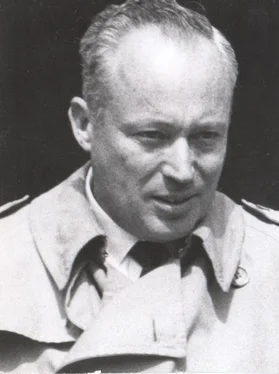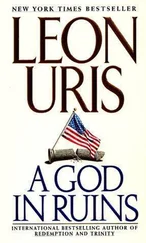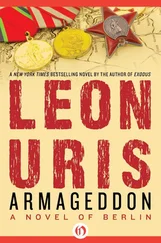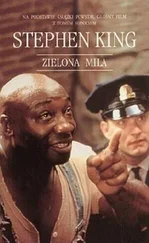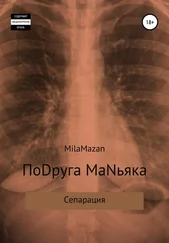Jews were charred into unrecognizable smoldering corpses.
Jews were roasted in bunkers which were turned into coffins by wind shifts and downdrafts.
Jews were choked to death in clouds of smoke which crushed their lungs.
Jews leaped from their hiding places into the sewers and were boiled to death in bubbling, sizzling waters.
On the fifteenth day the ghetto burned.
On the sixteenth day the ghetto burned.
On the seventeenth day it burned. Pillars of smoke continued to reach for the sky, and for miles in every direction it was black. Undraped skeletons defiantly remained standing.
Searchlights picked out the dissenters and the guns rankled and the walls fell.
Because of the extreme depth of Mila 18, it had been spared direct contact with the fire. But the bunker was a continued scene of the epitome of agony. Heat reached 170 degrees. Naked people collapsed atop each other in exhaustion. The Treblinka room, the central area hospital, was loaded with groaning, charred ruins of human beings. Many were burned beyond recognition. Deborah Bronski and the other nurses had no salve for their wounds and but a drop of water for their parched lips. Day and night they begged to be put to death to escape their misery, but not even a bullet could be spared for that.
And when they died they were taken through the Majdanek room, the children’s part of the bunker connected to the sewer. Their bodies were floated out in the sewer to make room for more near death to be brought down from the inferno above.
His voice grew weaker and weaker, but day and night Rabbi Solomon wailed in a stupor the chant “Eli, Eli.”
“My God, my God, why hast Thou forsaken me?”
In fire and flame our race did they burn,
With shame our masses brand.
Yet none turned away from Thee.
Not from Thee, my God, nor Thy Torah. ...
On the nineteenth day nearly everything that could be burned had burned. Now was a time for smoldering. Iron beams sizzled out their stored-up heat. Pavements could not be walked on. The boiling sewers ran cool again.
And when the sizzling slowed on the twentieth day, the Germans returned to probe the enemy strength, hoping that their work had been complete.
But most of the Fighters lived and throughout their agony begged to see the face of the enemy once more. Rodel and ten of his people moved behind the broken walls, searching out bunkers of Fighters, when the Germans came in.
He hid his men in a rubble pile as a patrol advanced toward him along Lubecka Street.
The Germans moved cautiously, fearfully, hopefully expecting every Jew would be gone.
An officer pointed to his sub-machine gunner to check the rubble pile on his right.
Rodel had a quick decision to make. The Germans had twenty men spread on the street. His people did not have the equipment to attack them. Yet the soldier would surely discover them if he kept coming. Rodel tightened his fat lips and felt his pistol. His eyes became glued to the soldier’s weapon. A lovely sub-machine gun, and then he saw the soldier’s water canteen.
The German had almost reached Rodel’s group.
“Stay under cover,” Rodel ordered, and in the same instant leaped out of the rubble.
“Jew!” screamed the startled German in his last word. Rodel’s knife slit him in half. He snatched the sub-machine gun, jerked off the ammunition belt, and drew the German patrol away from his own Fighters.
“After him!”
The Waffen SS fired.
Rodel dropped back into the skeleton of a building. Half its walls had fallen away, exposing the stairway up to the top floor, which was still burning. He crouched and let go a burst which scattered them and he began to climb the exposed stairs. Half of the twenty Germans raced in after him, and the second half stayed in the street and fired into the denuded building.
Up one flight, up two. He crouched and shot down on his pursuers.
His own Fighters used that moment to make their escape.
Rodel came to the top floor. The rooms were burning. He retreated to a dead end. Fire lapped all around him. The Germans came up the steps and forced him to break ground with a grenade lobbed at his feet. He reeled back, his machine pistol spewing defiantly. Curses poured from his mouth. The fire caught his shirt and flared up his back. He snarled and moved into his tormentors and fired, and they began retreating down the stairs, awed by his rage.
A human torch spit at them from a landing. His gun went empty. He pulled his pistol out and fired.
A German bullet struck him, two, three. He staggered and crashed out of the building, flaming down to the sidewalk, and his body smashed on the pavement. With broken bones protruding from his body, he kept crawling toward the Germans on the street and firing his pistol.
On the twentieth day the Germans returned with sound detectors, engineers, and dogs. Thirst-crazed Fighters leaped at them with vengeance, but the tide of war had turned unalterably.
While the ghetto burned, Oberführer Funk meticulously planned the block-by-block extermination of what remained of the ghetto. With military efficiency the Germans set up barricades over a block and then took it apart house by house, room by room. They were able to unearth one bunker after another and find people cowering in the rubble. Once a bunker was located, the engineers moved in efficiently and set dynamite charges in them. The blasts were followed up by teams of flame throwers, and finally the last of the “experts” pumped poison gas in.
Manhole covers were thrown open and poison gas filled the sewers. They were flooded to the height of the pipes.
Soon the putrid waters were clogged with corpses entangled in the barbed-wire traps.
On the twenty-first and twenty-second days, bunkers fell by the dozens. Still the pesky, arrogant Jewish Fighters continued their attacks. The Germans detested running into the Fighters because it called for a struggle to the death.
By the twenty-third day a hundred fifty bunkers had been methodically located.
A new tactic was tried.
Five-gallon cans of drinking water and freshly baked bread were set up by the Germans at intersections to lure the starved, thirst-crazed survivors into the open. Once a child was captured, he was tortured before his mother to reveal the location of a bunker. The bestial dogs forced their share of confessions.
Fifteen thousand near dead were uncovered and marched to the Umschlagplatz by the end of the twenty-third day.
On the twenty-fourth day the Germans were certain they had won the hardest battles and it was now a downhill fight. During the night Andrei Androfski, whose job was to reorganize the Joint Fighters after each day, pulled together two hundred sixteen fighters and the entire stock of firearms and waited for the enemy. Fighting out of rubble, they audaciously threw the Germans out of the ghetto in a series of ambushes, captured the planted food and water, and crashed through the Gensia Gate into the Aryan side, where they raided a small arsenal and threw the arms over the wall to their waiting comrades. They had captured enough food, ammunition, and water to sustain them for another angry gasp.
Sylvia Brandel was killed in this action, trying to tend a fallen Fighter.
So great was Oberführer Funk’s frustration, he shot one of his officers to death in a rage.
“German patrol overhead.”
Mila 18 went into a familiar pattern of silence. Deborah Bronski kept the remaining twenty children quiet. The Fighters did not breathe. The wounded prayed silently, daring not to shriek out their pain.
An hour passed ... two ...
The Germans still hovered over them, pressing in to find the elusive headquarters of the Joint Fighters.
On the third hour Rabbi Solomon began to weep prayers. Simon Eden nearly choked him to death to silence him.
Читать дальше
